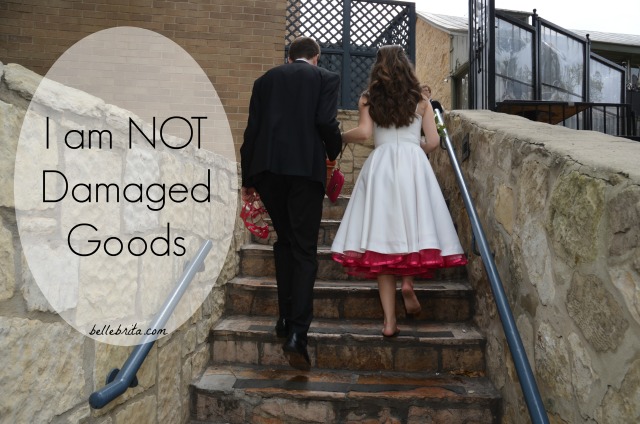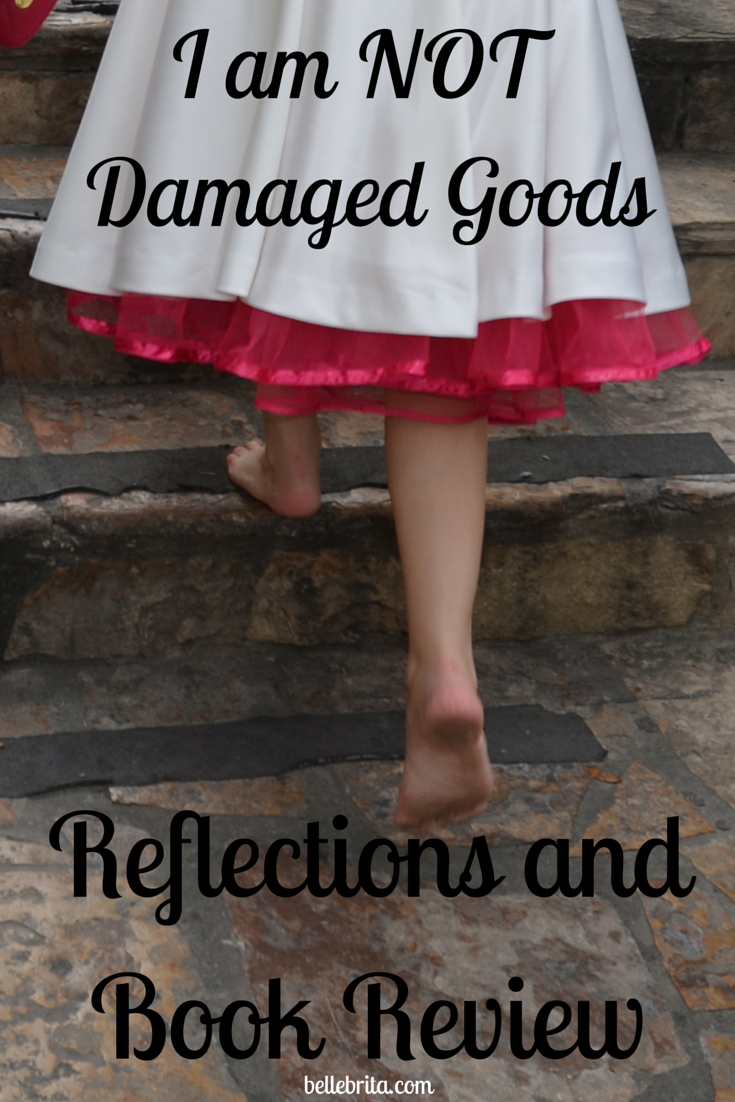Post contains Amazon Affiliate links. Read my full disclosure for more details.
I didn’t think anything could influence my personal approach to Christian feminism as much as Sarah Bessey’s Jesus Feminist.
That is, until I read Damaged Goods: New Perspectives on Christian Purity by Dianna E. Anderson.
I’ve been reading Anderson’s blog for a few years now, and I’ve eagerly awaited her debut book. I even pre-ordered it, so I was pretty excited when it arrived last week.
I didn’t think I would be able to start reading it right away, but I’ve been sick for the last few days, giving me time to catch up on my reading.
Anderson isn’t the only Christian feminist critiquing Purity Culture, but her book is the first detailed, inclusive, biblical, and life-affirming alternative to Purity Culture.
A quick background to those of you lucky enough to have avoided Purity Culture:
Purity Culture is a shame-based environment that condemns any sexual activity or even sexual thoughts outside of a heterosexual marriage between two cisgender people. In Purity Culture, not only is premarital sex a sin, but it’s essentially an unforgivable sin.
Anderson gives a more detailed history of Purity Culture in her second chapter, “A Review of the Christian Purity Movement.”
Proponents of Purity Culture often respond to criticism with an eye-roll and the sarcastic question, “What, so we should all just start having sex with everyone?” or similar hyperbole.
Anderson’s book actually addresses that question by providing guidelines for developing healthy sexual ethics. These ethics are based primarily on mutual, enthusiastic consent between adults, a conversation disturbingly lacking in Purity Culture.
Throughout her book, Anderson makes it incredibly clear that neither abstinence nor the decision to wait until marriage are the problem. Rather, the problem is a combination of scare tactics, false information, gross gender generalizations, and more that cause young Christians to choose abstinence out of fear or shame.
As a young woman with a somewhat unique sexual journey myself, not once in Anderson’s writing did I feel judged or maligned for the romantic and sexual choices I’ve made over the years. This is actually why Christian feminism in particular is so important to me.
Christians still entrenched within Purity Culture have treated me like I was a slut. Secular feminists have treated me like I was naive. At times, people from both groups told me my personal decisions were wrong.
For the record, sluts don’t exist. They’re like unicorns. They aren’t real. Slut is just a slur that people use when they don’t like a particular woman, or her clothing, or her body, or her sexual choices. The first time a guy called me a slut, I was in high school, and it was public knowledge that I hadn’t even kissed a guy yet.
Christian feminists have always accepted me and the choices I’ve made regarding my own body.
My husband is not the first man I kissed. I am not damaged goods.
My husband is not the only man who has seen my breasts. I am not damaged goods.
My husband and I slept in the same bed before marriage. I am not damaged goods.
I am not damaged goods, and neither are you.
Shame isn't from God, it isn't of God, and it isn't something Christians should engage in. #DamagedGoods
— Brita Long (@BelleBrita) February 22, 2015
If you have ever been shamed in Christian circles for your sexual status, for your gender identity, for your sexual attraction, for your body type, for the clothes you wear… please know, there is another way. If you’re not ready to invest in Damaged Goods, then start with some of Anderson’s blog posts.
Five Lies the Church Told Me about Sex
What Being Free of Shame Looks Like
Five Reasons to Wait Until Marriage
In Their Own Words: Ten Scary Quotes from Purity Culture Advocates
For anyone who is looking for:
- a true challenge to Purity Culture
- inclusive and loving guidelines on sexual ethics
- an understandable analysis of what the Bible says about sex
- a personal narrative of escaping Purity Culture
I highly recommend Dianna E. Anderson’s debut book, Damaged Goods: New Perspectives on Christian Purity.
How do faith and feminism work in your life? Have you encountered Purity Culture? I want to know your thoughts on this often contentious subject.



Beautifully written, Brita. The whole purity culture missed me, and I have to say, I am kinda glad of it! Yes, we are supposed to stay pure and do the right thing, and sometimes we slip up. But, I don’t see the same type of shaming going on for someone who takes the Lord’s name in vain. That is what is so backwards about this!
Stopping by from Monday Madness. I’ve never heard the term “purity culture” before. I think that any kind of shaming is helpful, necessarily, or particularly WWJD-ish, but it’s a fine like to walk. Purity is important, and since sex is the most special thing two people can share and it has the potential to create a new life and a family, it obviously should be treated with the utmost respect and reverence. There’s a difference between saying “no shaming” and saying “it’s all good,” but the distinction gets lost sometimes.
Brita,
Thanks so much for sharing this with me. I too could have easily felt like damaged goods when I, a non-virgin, married a virgin as a convert to the LDS church. I know that many people have had experiences that make them feel this kind of shame and many people wrongly assume that it’s their place to judge.
In my experience, though, I was never once made to feel that way. I felt (and still feel) that through the atonement of Christ my sins were washed away and I was as pure as if it had never happened. But still, it is somewhat liberating to join you in publicly declaring, I am not damaged goods! Huzzah!
🙂
Brittany